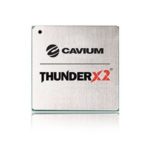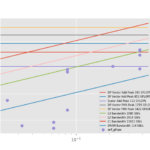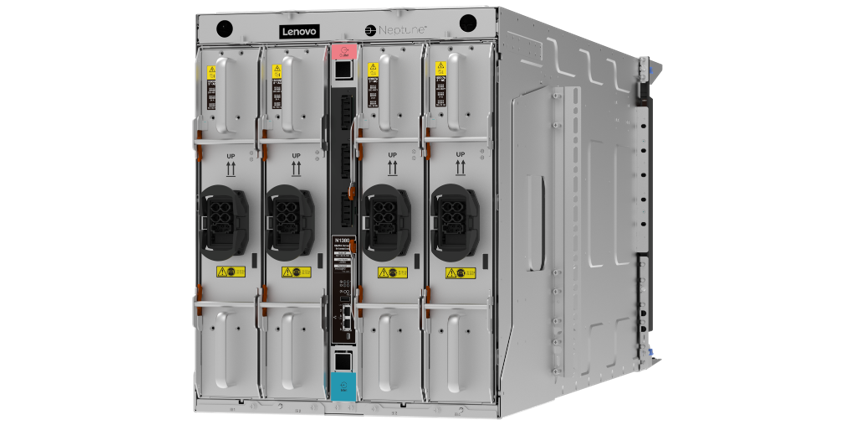Today Cavium announced the General Availability of ThunderX2, Cavium’s second generation of Armv8-A SoC processors. “Integrating ThunderX2 into the HPE Apollo 70 Servers is another example of HPE’s leadership in driving innovation and superior technical solutions into the HPC server market. The ThunderX2 processor provides excellent compute and memory performance that is critical for our HPE Apollo 70 customers and the applications they depend on.”
ScaleMP Powers Largest Shared-Memory Systems in Canada
ScaleMP announced that the government of Canada has extended the contract for its large shared memory systems acquired from Dell. These SMP systems use vSMP Foundation to aggregate more than 64 Intel Xeon processors each, totaling more than 1500 CPUs per system. The systems are used for a variety of HPC workloads, including computer-aided engineering (CAE) and computational fluid dynamics (CFD). “Together with our hardware partners, we have been providing technology to the government of Canada since 2012, and are proud of repeatedly earning their business,” said Shai Fultheim, founder and CEO of ScaleMP. “repeat customers are a big part of the vSMP Foundation user community, and we continue to see expansion of our footprint with existing customers along with strong growth in deployments of vSMP Foundation with new ones.”
Lenovo Updates LiCO Tools to Accelerate AI Deployment
Over at the Lenovo Blog, Dr. Bhushan Desam writes that the company just updated its LiCO tools to accelerate AI deployment and development for Enterprise and HPC implementations. “LiCO simplifies resource management and makes launching AI training jobs in clusters easy. LiCO currently supports multiple AI frameworks, including TensorFlow, Caffe, Intel Caffe, and MXNet. Additionally, multiple versions of those AI frameworks can easily be maintained and managed using Singularity containers. This consequently provides agility for IT managers to support development efforts for multiple users and applications simultaneously.”
Asetek Announces Ongoing Collaboration with Intel on Liquid Cooling for Servers and Datacenters
In anticipation of forthcoming product announcements, Asetek today announced an ongoing collaboration with Intel to provide hot water liquid cooling for servers and datacenters. This collaboration, which includes Asetek’s ServerLSL and RackCDU D2C technologies, is focused on the liquid cooling of density-optimized Intel Compute Modules supporting high-performance Intel Xeon Scalable processors.
Performance Insights Using the Intel Advisor Python API
Tuning a complex application for today’s heterogeneous platforms requires an understanding of the application itself as well as familiarity with tools that are available for assisting with analyzing where in the code itself to look for bottlenecks. The process for optimizing the performance of an application, in general, requires the following steps that are most likely applicable for a wide range of applications.
Intel’s Al Gara Presents: Technology Opportunities Like Never Before
Al Gara from gave this talk at the Intel HPC Developer Conference in Denver. “Technology visionaries architecting the future of HPC and AI will share the key challenges as well as Intel’s direction. The talk will cover the adaptation of AI into HPC workflows, along their perspective architectural developments, upcoming transitions and range of solutions, technology opportunities, and the driving forces behind them.”
Video: OpenACC Eases GPU Programming for HPC at SC17
In this video from SC17, Sunita Chandrasekaran from OpenACC.org and Stan Posey from NVIDIA describe how OpenACC eases GPU programming for HPC. “At SC17, OpenACC.org announced milestones highlighting OpenACC’s broad adoption in weather and climate models that simulate the Earth’s atmosphere, including one of this year’s Gordon Bell finalist. Additionally, the organization announced their hackathon momentum and the new OpenACC 2.6 specification.”
Ireland Reaches #1 in TOP500 Supercomputers per capita
The 9th Irish Supercomputer List was released today. For the first time, Ireland has four computers ranked on the Top500 and Ireland is now ranked number one globally in terms of number of Top500 supercomputers per capita.
Ray Tracing on Intel Xeon Phi with Embree
In computer graphics, ray tracing is a rendering technique for generating an image by tracing the path of light as pixels in an image plane and simulating the effects of its encounters with virtual objects. “Experienced computer graphics developers that understand how ray tracing works, in conjunction with a deep knowledge of the Intel Xeon Phi processor hardware have created a set of ray tracing kernels that take advantage of the underlying instruction sets and the available number of computing cores.”
Intel FPGAs Power Acceleration-as-a-Service for Alibaba Cloud
Intel field programmable gate arrays (FPGAs) are now powering the Acceleration-as-a-Service of Alibaba Cloud. “Intel FPGAs offer us a more cost-effective way to accelerate cloud-based application performance for our customers who are running business applications and demanding data and scientific workloads,” said Jin Li, vice president of Alibaba Cloud. “Another key value of FPGAs is that they provide high performance at low power, and the flexibility for managing diverse computing workloads.”













